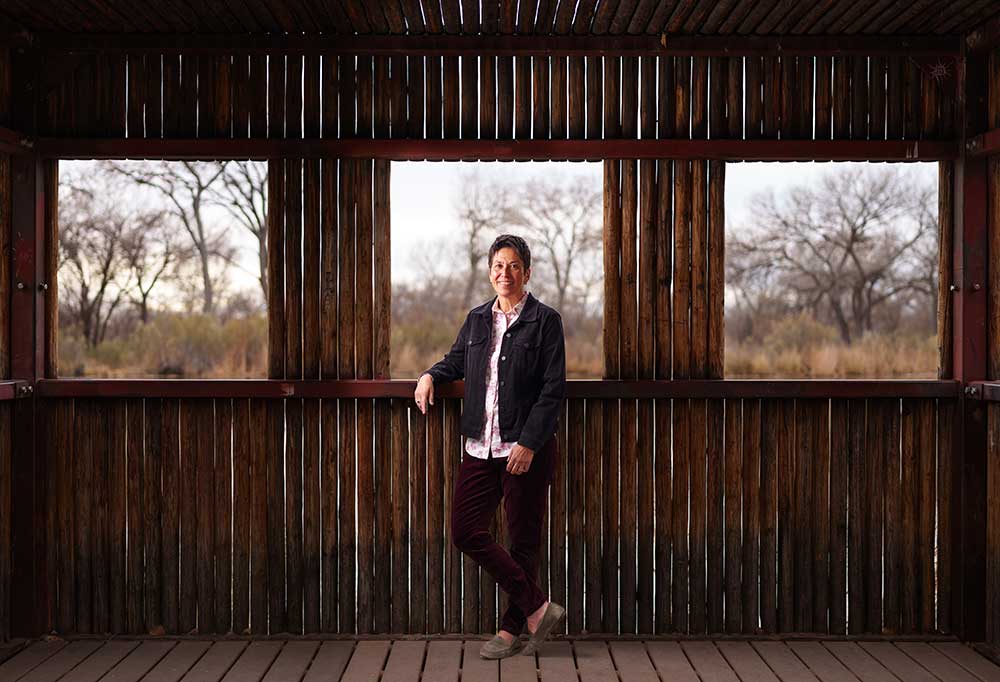
Like so many in the workforce, Michele LaMontagne has experienced good leaders and bad ones.
“Leadership can make such a big impact, not just at work, but in your life,” Michele said. “When I think about the great leaders I’ve had and have, I think about how it’s affected my life at work and at home. I’m happier.”
Leadership makes a difference. And Michele and her team are the driving force in building a leadership ecosystem at Sandia to help build effective leaders and strong teams.
Currently Michele’s group is focused on level-one managers at the Labs.
“Volumewise, this is the largest group of leaders at Sandia,” Michele said. “L1 managers are at the frontlines with members of our workforce. This is where we see the biggest opportunity to influence not just the work we do, but also to build future leaders and develop our talent pipeline.”
Previously level-one managers at Sandia took part in a four-day intensive training, but as a manager herself, Michele saw the need for more continuous development.
“It’s hard to learn everything you need to as a new manager or team lead in just four days, so we rebuilt the program, now called the Leadership Compass, which is an eight-week asynchronous learning program where we focus on certain topics and activities each week,” Michele said. “We also created the L1 Odyssey offered after managers complete the Leadership Compass. This is a six-month program where cohorts meet for four hours every other month to learn about various leadership topics.”
Leadership styles
Before Sandia, Michele worked in the private industry for 18 years and before that, eight years as an Aircraft Maintenance Officer for the United States Air Force before transitioning to the New Mexico Air National Guard where she served for 23 years, totaling 31 years of service. These experiences exposed Michele to two very different styles of leadership hierarchy.
“My industry job had three levels of leadership in the company, people operated in self-directed work teams with a leader who wasn’t called their manager but rather a business coach,” Michele said. “Coming into that from the military, which has a very hierarchal structure, really expanded my thinking of what was possible and the challenges that existed.”
For Michele, both styles have a place depending on the needs of the organization or team, but critical to any style is having a strong foundation. And for Michele, that strong foundation starts with building up those frontline managers.
“Where I see leaders struggle is when they pick one type of philosophy and try to force it to work in every situation,” Michele said. “I’m not usually a fan of directive leadership, I prefer a more collaborative and mutually supportive relationship, but they both have a place. For example, if you’re in a situation where you have an aircraft that has a problem and someone needs to make a call ASAP or they’re going to miss some critical deadline, leaders need to be able to step in, direct and say, ‘this is what we’re going to do.’”
“Effective leaders need to be able to shift fluidly between who they are as managers and people and what is needed in specific situations,” Michele said.
And while Michele and her team’s work is currently focused on training and development for level-one managers, the long-term goal is to build up leadership for all.
“Big picture, we want to create a leadership ecosystem that everyone at Sandia can be part of,” Michele said. “We know good leadership increases retention and engagement — so what if we could help everyone at the Labs, not just managers, become strong leaders?”